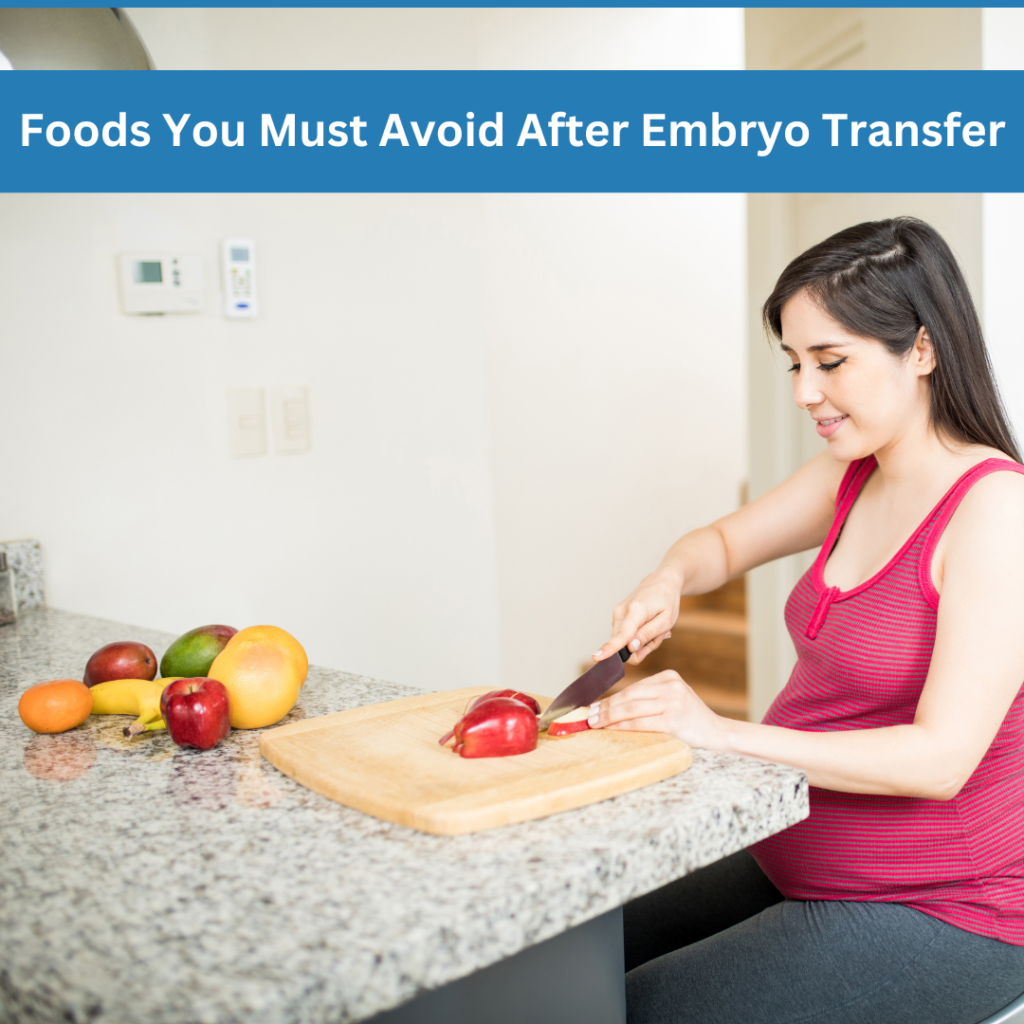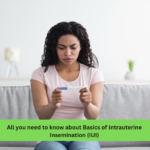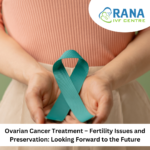Foods You Must Avoid After Embryo Transfer
Are you embarking on the brilliant experience of embryo transfer by the Best IVF Doctor in Ludhiana, your relied-on associate in fertility solutions? If yes, hats off to you! It takes a heap-load of courage and resilience to step into this experience. But, as they say, “An easy sea never made a skilled sailor.” Now, let’s take the plunge and dive right into one of the most critical yet regularly omitted factors of your IVF experience – nutrition.

Foods to avoid after embryo transfer
• Caffeinated Drinks: Sorry, coffee fans! High caffeine consumption has been associated with reduced fertility and can increase the risk of miscarriage. It’s time to bid adieu to your cup of Joe, energy drinks, and even that seemingly harmless bar of chocolate.
• Alcohol: Alcohol is a big no-no as it can interfere with the embryo’s ability to implant within the uterus, not to mention the potential risks to fetal development if pregnancy is successful.
• Raw Seafood: Raw or undercooked seafood, like sushi, can pose a risk of bacterial or parasitic infections, including listeriosis or toxoplasmosis, which could threaten your pregnancy.
• Processed Foods: Processed foods are often high in trans fat, which has been linked to an increased risk of ovulatory infertility.
• High-Mercury Fish: Certain types of fish, like sharks, swordfish, and king mackerel, are high in mercury, which may negatively affect fetal brain development.
• Unpasteurized Dairy and Juice: Unpasteurized products bring the risk of foodborne illnesses, which can be especially risky during this delicate phase.
• Soft Cheese: Certain soft cheeses may contain Listeria, a bacterium that could pass the placenta and potentially cause infection or blood poisoning, which can be life-threatening.
Conclusion: Your IVF transfer is an experience of a lifetime, and your diet can play a crucial role in its success. By following a well-established healthy eating plan, making smart food choices, and avoiding potential pitfalls, you can create an environment that enhances your chances of successful conception and implantation.





No Comments